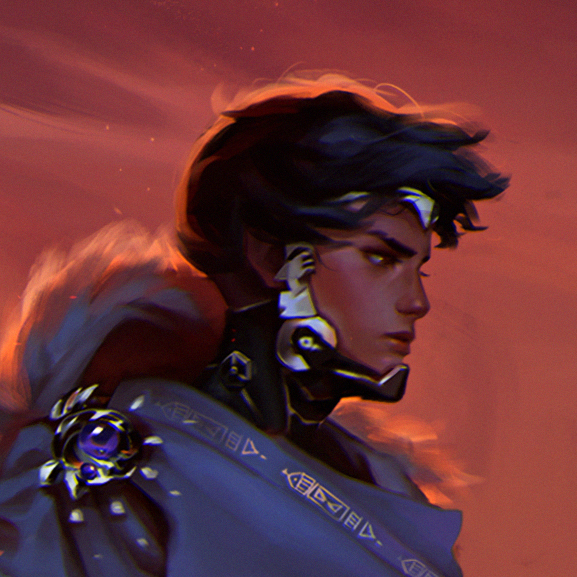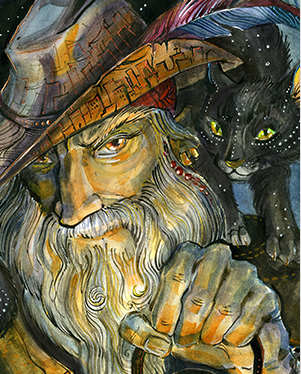You don't need a textbook to understand how to feel things. Why should I care about what someone else has written? It's all fake. To look at the crowd, make them dance and scream, that is real life. — Vivy Sturm, in an interview for ROCKing Starlets
In a music world that sees new stars rise and fade in a matter of weeks, the lively Vivy Sturm has become an unlikely Wavepunk phenomenon. It is not that her music is bad, but it takes more than being good when competing against the industry's artist assembly line, a club for the genetically optimized with flawless musical talent and marketable looks. Carving her own way, Vivy's rise to fame relied on spectacular live performances and feeding the tabloids with more scandals in a month than others do in their entire career. "There is no such thing as bad publicity" is more applicable than ever in the 22nd century. Vivy's recent reveal as a
Bionic following a near fatal helicopter crash has sent shockwaves through the world and even spawned its own conspiracy cult.
A Star is Made
2167 was a harsh year for
Nightline Unlimited Records. The label had attempted to milk the recent "Helltronica" trend for consecutive year number four. To the amazement of about every analyst, the audience was bored to tears with the artist lineup.
If nothing else, we all owe Vivy for single-handedly killing off that stupid, though in hindsight very aptly named, fad. — ROCKing Starlets Editorial
Nightline's star producer
Rob de Vries was desparate to find something - anything - to break back into the market. He would later claim to have discovered Vivy playing for gangers and junkies in one of
Gravity Squares' groungy dive bars. Industry insiders have repeatedly casted doubt on that version of events, however.
That woman, Vivy's mother, had been harassing Rob for a year or so to get an audition for her daughter. He finally gave her a few pieces to try out in the booth, but it wasn't her style and she wasn't used to perform without seeing anyone. Rob wasn't impressed. Then Cheryl [the regional manager] suddenly suggested that she come out and try unplugged, told Vivy to go wild. And boy, did she. I'm not even sure what it was... singing, rapping, screaming, anything in between. My arms, I got goosebumps all over, it was intense. Powerful. When we were done, Cheryl, she gave me that look, and said to me
"Forget about that pop shit. This is a LOUD bitch." — Audio Technician Kenny Scholz for the Rising Sturm documentary
Vivy was offered a contract as the lead of a band, which would be assembled and supervised by
Rob. It quickly became apparent that Vivy was the well of ideas they would draw from, though her scattered and restless nature made it difficult to get things done on time.
Their first single, "Clawing Back", was finalized two months behind schedule, at 4 AM while the band was riding circles and jamming on the
Magrail. By Vivy's account, everyone was completely boozed out of their minds after four consecutive days of partying and having been ejected from their hotel room. The piece was breathless and harsh, disharmonic and chaotic, carried by the range of Vivy's raw voice that snuck on you in one moment, then kicked you in the gut while you weren't looking. To
Rob's ears, it was a garbled mess that took all of his skill to salvage in mixing and postproduction. Contrary to his glum expectations, the single would become a modest success, and one direly needed considering the complete implosion of the Helltronica scene that year.
Breaking the Limits
Frustrated by the band's lack of professionalism,
Rob injected himself more directly in the creative process. He took up the job of picking the most workable of Vivy's ideas and providing the necessary direction to refine it into something that could be released. Among plenty of fights and drama, this arrangement produced a steady stream of new material. Vivy's writing and vocal style too began to take a more distinct shape, but that was nothing compared to her first live stage appearance.
The first set of songs had fallen rather flat, and the crowd was feeling tense. As the band prepared for the next title, Vivy turned to the audience.
I know this isn't what you're used to. I'm sorry that I don't know you all well enough, but I want to. I want to get to know each one of you. Maybe you'll like this one... — Vivy Sturm
Though her words were simple and nothing unexpected had been said - something, though it defied rational explanation, had changed. As they resumed to play, with the beats of "Get Nuked" building up towards an ever faster rhythm, her raspy voice began to resonate with the beating of their hearts. Anger and frustration lifted, twirling and merging with the melody to fill the air with invisible jolts of energy. Vivy ended the song screaming at the top of the lungs - and the crowd was going mad.
From this point on, the band would deliver one smashing live performance after the other. Tickets and album sales exploded, arranging a world tour was given top priority. Bombastic stage shows using holograms, flame throwers, and clouds of
Pixie Dust became as much as a part of the concert as the music itself - if not more so. This was the perfect outlet for Vivy's love of experimentation, who orchestrated ever more complex choreographies with little regard for cost or safety.
Crashing Down
Overbooked concerts and record breaking sales did little to satisfy Vivy - if anything, the routine of tours and media appearances was bringing her closer to a nervous breakdown. She walked out of interviews on a whim, beat up reporters and insisted to be addressed as "My Queen". During a talk show, she suddenly claimed to have been born in the techno-anarchistic wilderness of
The Frontier, sent here to "prepare subjugation of the city". A short while later she became involved with the postreligious
Prisma Communion, used every opportunity to advertise for her newfound faith and refused to talk about anything else. All of this in addition to non-stop partying and rumors of rampant drug addiction ensured that the media could not get enough of her.
Nightline Unlimited Records was willing to entertain Vivy's eccentric antics as long as it was profitable. However, the situation was starting to hurt the corporation's bottom line. It is rumored that
Rob de Vries received an ultimatum to deal with the situation. However it happened, Vivy's private helicopter crashed in an accident, killing the crew and hospitalizing the star for several months. When she returned to the public light, reporters were shocked by her drastically different appearance - a metallic layer of callous had scarred wide swaths of her skin. There, in front of their eyes, stood solid proof that the person Vivy Sturm was actually a
Bionic AI. It was the scoop of the century, and it shook the music world to its core.
She wants to thank her fans for their support and prayers, which have given her the strength to carry on and make a comeback tour later this year. Though this accident was a tragedy, there is also a bright side. She is convinced that it is time to show the world her true self, as a Bionic. We hope that seeing her climb to the top - noone was able to tell the difference between her and a true human - that this will help to combat the prejudice her kind faces every day. — Rob de Vries, during a press conference announcing Vivy Sturm's recovery
The Real Thing
Although Vivy's comeback tour was the most successful to date, some fans are concerned that she has lost her fire. Only two new songs have been released since the accident; both of them are considered mediocre. Instead, she now appears much more frequently on the media networks' commercials or for cameos in popular TV shows. A documentary of her career was filmed, complete with "real" footage of her private life, painting her one time as a courageous rebel, then as a broken mess. She has repeatedly denied rumors that she is tired and avoiding the public.
"I am more grateful and happy than I have ever been in my life", she commented during a "spontaneous" interview in front of her mansion.
We all change as we grow older, don't we? But I still love music and my fans, and to them I want to say: Rob and I have an amazing plan to allow me to connect with you all in a way noone has ever done before. — Vivy Sturm
That announcement did not fail to raise a storm of rumors, but none of the predictions came even close to the truth. The very next day, commercials advertising the sale of
Vivybots aired all over the
Synflux. Such a step was unprecedented and caused an outrage from
AI rights activists. However, their concerns were first ignored, then contested and undermined in a campaign spearheaded by a number of corporate scientists and ethicists.
It is a machine made by humans, programmed by humans. It may look like us, but it simply is not equivalent. As our creation, it cannot have the same rights. Still, we should welcome the discussion, as long as it remains respectful and open minded. We have to be rational about this. — Dr. Oskar Rasmussen, AI Scientist


































I am glad to be the first like. Intense story integrated with your description of Vivy. I enjoyed reading it.
Share your articles on Lavani's Reading List!
Thanks a lot!